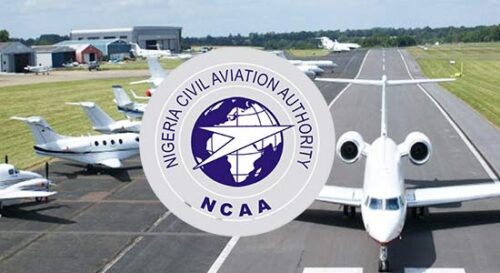
The Nigeria Civil Aviation Authority (NCAA) has highlighted key reasons behind its ongoing revenue challenges. Chris Najomo, the Director-General of Civil Aviation (DGCA), pointed out that gaps in revenue generation and cost recovery are major contributors to its underperformance.
Speaking at the Aviation Finance and Revenue Assurance Summit in Lagos, he emphasized the need for better collaboration between revenue units and domestic airlines. The event, themed “Enhancing Cost Recovery Capabilities and Administrative Efficiency,” aimed to address these persistent issues.
Weak Coordination Is Hindering Revenue Collection
One of the biggest setbacks for NCAA is the lack of synergy between revenue collection and cost recovery units. According to Najomo, who was represented by Olufemi Odukoya, NCAA’s Director of Finance and Accounts (DFA), the gap between expected revenue and actual collections remains a serious concern.
For instance, many airline CFOs struggle with working capital management, leading to delayed statutory payments. Moreover, the poor flow of information and lack of cooperation between airlines and the NCAA further complicates the problem.
Compliance Gaps Are Affecting Financial Transparency
Another critical issue is non-compliance with statutory obligations. Some airline CFOs fail to remit payments on time, while others do not provide accurate revenue reports. As a result, NCAA struggles to optimize revenue and ensure financial stability.
Najomo expressed optimism that this summit would serve as a turning point. He believes that fostering a more inclusive regulatory framework will enhance economic growth, operational efficiency, and service delivery across Nigeria’s aviation industry.
Macroeconomic Challenges Demand Innovative Solutions
Beyond internal inefficiencies, Nigeria’s economic instability has also contributed to NCAA’s revenue shortfalls. Najomo stressed that tackling these challenges requires a more innovative approach to financial and regulatory management.
To address the broader economic landscape, President Bola Tinubu has introduced an eight-point agenda focused on economic growth. Additionally, Aviation Minister Festus Keyamo has rolled out a five-point plan to reform the industry. NCAA, therefore, must align its operations with these national strategies to improve performance.
Airlines Must Stay Updated on Regulations
During the summit, aviation consultant Michael Awa urged airlines to remain proactive in complying with global aviation regulations. In his presentation, “Improving Operational and Regulatory Environment Through Collaboration and Synergy,” he emphasized that CFOs must stay informed about industry policies to avoid financial and operational risks.
Given that regulatory bodies such as ICAO, IATA, ACI, FAA, and NCAA frequently update their safety, security, and environmental policies, airlines must ensure they quickly adapt to these changes.
Furthermore, Awa advised airlines to regularly reconcile financial statements with NCAA. By doing so, they can reduce discrepancies, prevent penalties, and improve financial transparency.
A Call for Stronger Industry-Wide Collaboration
Clearly, NCAA’s revenue struggles stem from internal inefficiencies, non-compliance, and broader economic pressures. However, several steps can help resolve these issues:
✅ Enhanced coordination between NCAA and airlines
✅ Improved financial management in domestic carriers
✅ Strict adherence to aviation regulations
✅ Alignment with government economic policies
With stronger collaboration, effective reforms, and better financial discipline, NCAA can improve revenue collection and strengthen Nigeria’s aviation sector.


